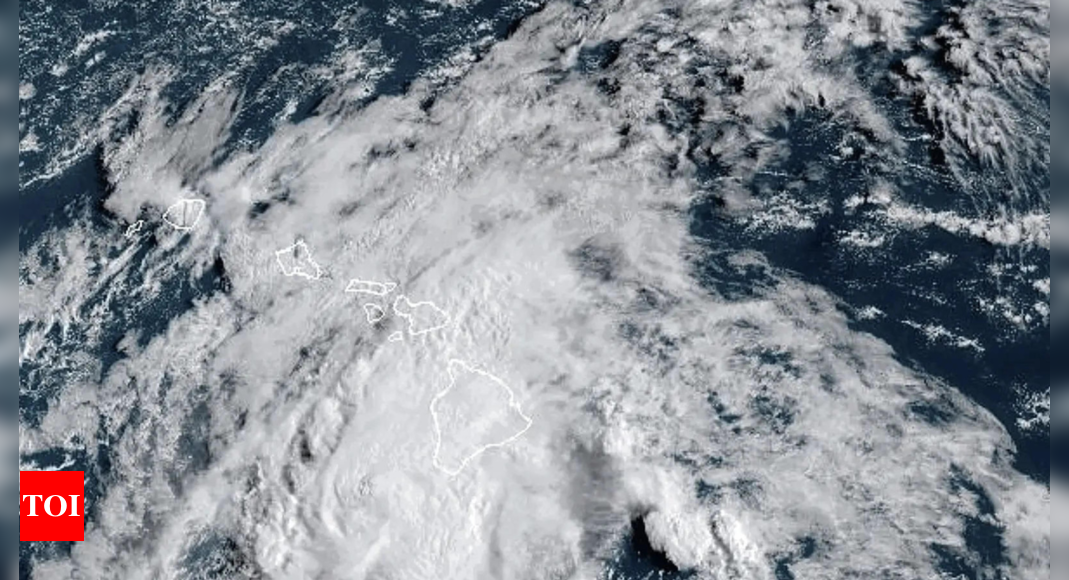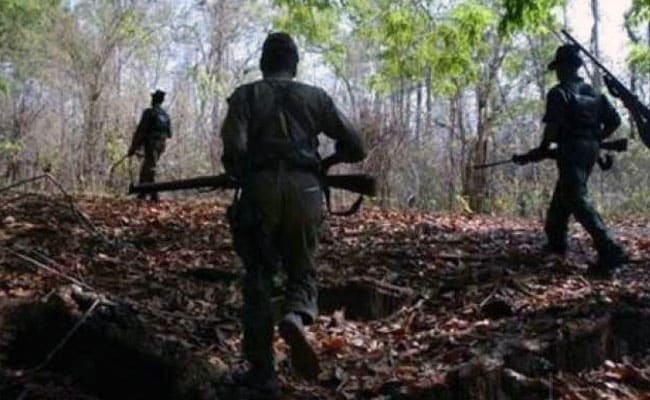
The impacts of these storms led to road closures and power outages to potential future flooding concerns.
Tropical storm Hone brings heavy rain to Hawaii
Tropical Storm Hone, pronounced “hoe-NEH,” caused road closures, downed power lines, and damaged trees in parts of the Big Island, according to William Ahue, a forecaster at the Central Pacific Hurricane Center in Honolulu. As of midday Monday, Hone was located 280 miles west-southwest of Honolulu, with maximum sustained winds of 65 mph, moving west at 13 mph.
“No major damage that we know of yet,” news agency AP quoted Big Island mayor Mitch Roth as saying. “No injuries that we know of at this point.”
One family had to be evacuated on Sunday due to flooding, Roth added. Additionally, four schools on the Big Island were closed because of power outages and flooded roads. Hawaiian Electric reported that the utility restored power to most customers who had experienced outages. State transportation officials warned that Hilo airport might experience increased traffic due to added flights to compensate for weekend cancellations.
Julia Neal, owner of a bed-and-breakfast on a former sugar plantation in Pahala on the Big Island, described her experience. “We were experiencing tropical storm winds and heavy pounding rain through the night.” She noted that while the storm was disruptive, it was also beneficial for the area. “Hone was also a gift in a way because we have been experiencing a lot of drought.”
Impact on Big Island
On Sunday, floods closed Highway 11 between Kona and Hilo, as well as an alternative higher-altitude route, the Cane Road, isolating properties such as the Aikane Plantation Coffee Co. Phil Becker, the owner of the coffee plantation, recounted the extent of the flooding.
“We’ve got quite a lot of flood damage, the gulches are running full speed ahead and they’re overflowing the bridges, so we’re trapped down here, we can’t get in or out,” he said.
Becker, who runs his plantation off the grid with solar-powered batteries, emphasised that his family was safe and had no need to evacuate. He also mentioned the potential benefits of the rainfall. “We’ve been in a drought situation so the coffee is probably loving all this rain,” he said.
Precautions against future fires amid Tropical Storm Hone
Hone, whose name means “sweet and soft” in Hawaiian, reminded residents of last year’s devastating wildfires on Maui. The fires, fueled by hurricane-force winds, ravaged the historic town of Lahaina, resulting in 102 deaths. The Maui blaze, which occurred on August 8, 2023, became the deadliest US wildfire in over a century. Dry and overgrown grasses, coupled with drought conditions, significantly contributed to the spread of the fire.
The cause of the Lahaina blaze is still under investigation, but one possible factor is the ignition by bare electrical wires and leaning power poles that toppled in strong winds.
In response to Tropical Storm Hone, Hawaiian Electric and the Kauai Island Utility Cooperative prepared to shut off power if necessary to prevent live, damaged power lines from starting fires. However, they later determined that such safety measures would not be needed as Hone moved past the islands.
Hurricane Gilma and Tropical Storm Hector gain strength
Meanwhile, in the eastern Pacific Ocean, Hurricane Gilma intensified into a strong Category 2 hurricane with maximum sustained winds of 110 mph. As of Monday, Gilma was located approximately 1,160 miles east of Hilo, Hawaii, and was moving west at 8 mph. The National Hurricane Center forecasted that Gilma would increase in forward speed but decrease in intensity as it approached the central Pacific basin on Tuesday.
Farther to the east, Tropical Storm Hector also gained strength on Monday. Hector’s top sustained winds reached 50 mph and the storm was centred about 1,125 miles west-southwest of Mexico’s Baja peninsula, moving west-northwest at 10 mph.
Despite these developments, Big Island Mayor Mitch Roth advised residents to remain vigilant. With the ground already saturated from recent rainfall, additional rain could pose further challenges.
“It’s never too early to start protecting your house,” Roth said to AP.









